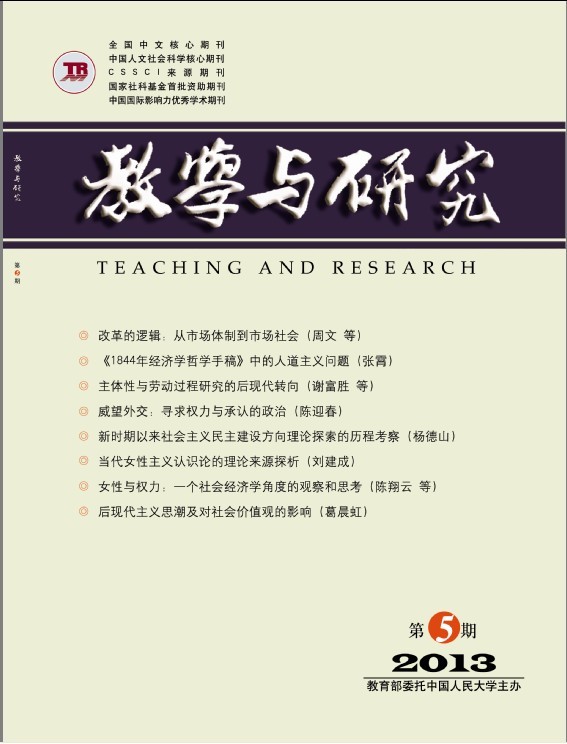|
|
The Post-modernist Trend of Thought and Its Impact on Social Values
GE Chen-Hong
2013, 47 (5):
96-103.
DOI:
Post-modernism,as a theoretic paradigm and a trend of thought,has originated from and is still in circulation in today's Western world. Its “deconstructive” approach offers a positive way of thinking with regard to emancipating the mind,boosting individuality,inspiring selfinitiated thinking and reshaping interpersonal relationships. However,deconstruction in post-modernism,especially the more “passive” kind of post-modernism,shows itself as a rather negative mode of thought bent on decomposing what's old at the expense of establishing nothing new. Amid all that hustle of deconstruction and disenchantment,the deeper,time-honored virtues such as truth,goodness and beauty are lost and gone,as the universality and inherent certainty of value are dissolved. With sole emphasis on multi-polarity,individual freedom and uncertainty in the process of “fragmentation”,value-related relativism,extreme egoism and even moral nihilism run amok. Hence,there arises the need to reassess both the theoretical structure and actual content of post-modernism comprehensively and thoroughly. Doing this well will contribute a lot towards developing the system of Chinese socialist core values,correct guidance of the country's cultural activities,and boosting confidence in our political institution,the theory we have adopted and the road we have taken. Besides,it also helps to nurture shared ideals,ethical and cultural progress,and a spirit of national unity.
Related Articles |
Metrics
|



